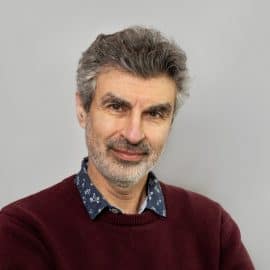


| Personal Brand Presence | 4 / 10 |
| Authoritativeness | 6 / 10 |
| Expertise | 5 / 10 |
| Influence | 4 / 10 |
| Overall Rating | 5 / 10 |
Yoshua Bengio is a highly renowned artificial intelligence specialist who has gained global recognition for his groundbreaking work in deep learning. He was co-winner of the 2018 A.M. Turing Award, also known as “the Nobel Prize of Computing,” alongside Geoffrey Hinton and Yann LeCun.
In addition to being the founder and scientific director of Mila – Quebec AI Institute, he has a full professorship at Université de Montréal. As Senior Fellow, he co-directs the CIFAR Learning in Machines & Brains initiative and serves as IVADO’s Scientific Director.
He received the esteemed Killam Prize in 2019 and rose to the top of the global citation count for computer scientists in 2022. Along with being a member of the UN’s Scientific Advisory Board for Independent Advice on Breakthroughs in Science and Technology since 2023, he is also a Fellow of the Royal Society of London and Canada, a Knight of the Legion of Honor of France, an Officer of the Order of Canada, and the Canada CIFAR AI Chair. He actively participated in the creation of the Montreal Declaration for the Responsible Development of Artificial Intelligence because he was concerned about how AI will affect society.
Yoshua Bengio talked about how parts of artificial intelligence safety may be enhanced through the use of more processing power. The Harvard School of Engineering and Applied Sciences’ faculty, graduate students, and postdoctoral fellows make up the Harvard Machine Learning Foundations Group, which is part of the AI Safety Studends. The talk is titled “Towards AI Safety that Improves with More Compute (rather than the other way around)”.
Bengio began the presentation by exploring the general issues around AI safety and risk mitigation.
“Most technology has two uses. It may be put to good use. It could be used with malevolent intent. We should be more concerned about this dual-use feature the more potent it is”, he added.
Bengio claimed that given AI’s growing processing power, an AI agent with the potential to be dangerous “for which we need democratic oversight” may appear soon. He said, “Whoever controls those tools gets to have more power because intelligence gives power.” This is especially true as we develop increasingly potent AI.
Throughout his career, Bengio claimed to have backed open source software, pointing out its primary benefits of accelerating development and enhancing system security, particularly in the field of cybersecurity. When computer software or projects are open source, their source code is made accessible to the public so that people can collaborate to examine, alter, and share it.
Ultimately, Bengio stressed that governments must increase their knowledge of AI in order to have effective regulation and democratic decision-making on the use of AI. “Governments need to acquire the capability to understand it, to master it, and even use it to defend themselves in order to regulate AI and have a democratic process to decide how we use it,” he stated.
Solana has demonstrated strong performance, driven by increasing adoption, institutional interest, and key partnerships, while facing potential ...
Know MoreIn April 2025, the crypto space focused on strengthening core infrastructure, with Ethereum preparing for the Pectra ...
Know More